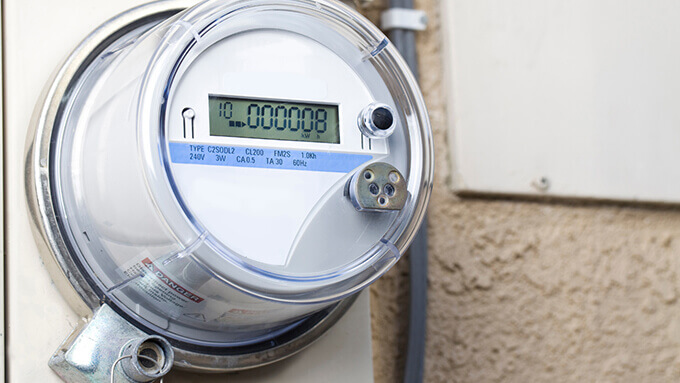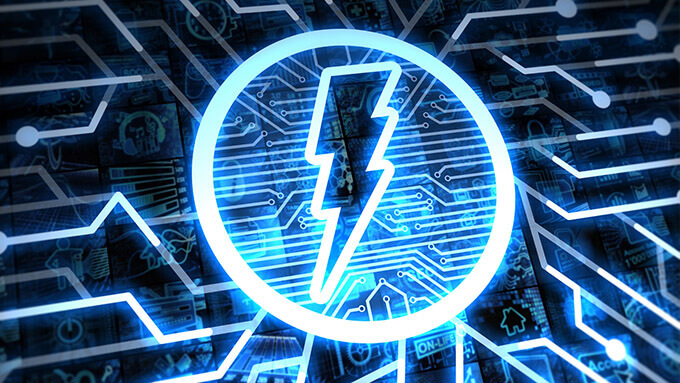Electric Vehicle Charging Network Operating License
Introduction
In response to the rapid increase of use of electric vehicles, legislative and regulatory initiatives have been taken to create a legal framework for electric vehicle charging services. On 21.12.2021, Electricity Market Act numbered 6446 (“EMA”) was amended to introduce charging services as a new regulated market activity. This amendment provides that those who would like to provide charging services for electric vehicles should obtain a charging network operator’s license. When this license is issued, the license holder becomes entitled to install and operate charging stations within the regions set out in their licenses, as well as to issue certificates for installation of charging stations within its charging network and to enter into loyalty agreements with electric vehicle users.
EMA supplementary clause 5 covers the general obligations of license holders. In addition, more detailed rules and principles are set out in the Charging Service Regulation which was published in the Official Journal dated 02.04.2022 and numbered 31797 (“Regulation”). In this article, the legal framework of electric vehicle charging network licenses under EMA and the Regulation will be examined.
License Applications
According to article 4 of the Regulation, charging networks may be operated pursuant to a license to be obtained from Energy Market Regulatory Authority (“EMRA”). The Regulation provides that electricity market participants whose tariffs are subject to regulatory supervision are not allowed to apply for an operating license and to provide charging services to electric vehicles. Furthermore, the applicant must be incorporated as a joint stock company or as a limited company with minimum capital of 4,500,000 TL. If the applicant is a joint stock company, all of its shares except for those being traded on a stock exchange must be registered shares. EMRA has also published the required documents for license applications as well as the license fees. It must be noted that, although the requested documents are listed in EMRA’s website, EMRA has the authority to request additional documents and information from applicants.
Electric Vehicle Charging Services
The Regulation defines an electric vehicle as a motor vehicle that uses an electric motor -- either exclusively or as secondary engine -- and which can be charged externally. Hence the Regulation covers fully-electric vehicles as well as hybrid ones. In this context, a charging network operator operates the charging networks and provides access to them for electric vehicle users pursuant to the principles set out in the Regulation. Charging networks are comprised of publicly accessible charging stations commercially operated pursuant to the certificates issued by the charging network operator.
Certificates for Charging Station Operators
The Regulation makes a distinction between charging network operators and charging station operators. In this respect, operators of the charging stations are required to obtain a certificate from the charging network operator and connect their charging stations to the charging network of that operator. Article 20 of the Regulation defines the minimum contents of the certificates to be issued by the charging network operators. Charging network operators are required to publish their procedures and principles that are to apply in issuing, terminating and cancelling such certificates. Such principles and procedures are required to comply with the law and they shall not contain provisions distorting the operation of the market.
A charging station may only receive a certificate from a single network operator and the charging station operator is subject to the supervision of the charging network operator. The Regulation explicitly provides that the charging network operator is the party who is primarily responsible for providing the charging services. The fact that charging services are provided via stations pursuant to the certificates issued pursuant to the Regulation does not eliminate the charging network operator’s liability. It must be noted that charging station operators are not required to obtain a license from EMRA.
The Regulation does not make it clear whether charging network operators may themselves operate charging stations within the scope of their licenses. Considering that the Regulation and the wording of supplementary article 5 of EMA do not include a provision precluding this possibility, charging network operators should be able to install and operate charging stations connected to their charging network.
Period for Compliance
Within six months from the date that the license is issued, the charging network operator is required to establish a charging network comprising at least 50 units and charging stations in at least five districts. Furthermore, Regulation article 15 provides detailed technical requirements for charging stations which will be connected to the charging network.
Obligations of License Holders
The Regulation authorizes EMRA to impose certain requirements on charging network operators, which may include an obligation to install a charging stations in locations determined by EMRA. As this would be burdensome for license holders, the Regulation states that costs arising therefrom may be taken into consideration in determining the charging service fee. The Regulation also imposes a variety of additional obligations on charging network operators. The following is a non-exhaustive list of important obligations set out in the Regulation:
- To provide continuous, uninterrupted and good quality charging service except for force majeure events.
- To provide charging services without discrimination as between users with equal circumstances.
- To provide services to all electric vehicles having the suitable socket type and to have all the required software, equipment and hardware required for doing so.
- To determine, announce and apply service fees in accordance with the relevant regulations.
- To refrain from requesting any additional fees in exchange of the charging services.
- To submit reports as may be requested by EMRA.
- To establish a suitable infrastructure to transmit contemporary data to EMRA.
- To take out insurance against possible damages that may arise out of charging services.
- To take information security measures.
- To establish, maintain and operate required management, supervision and recording systems to ensure interoperability between the charging stations.
Service Fees
The Regulation states that charging service fees may be freely determined pursuant to article 5 of EMA. That being said, there are certain rules in the Regulation which must be complied with in determining the applicable fees. These rules are set out in article 25/3 of the Regulation. According to this article, the charging service fee must have the following components:
- Investment and operational costs relating to installation of the charging stations and establishing the charging network.
- Amortizations and power purchase costs.
- Taxes, levies, funds and other statutory costs.
- A reasonable profit.
The prices are applied based on the unit energy (TL/kWh) supplied to the electric vehicles. It is possible to charge differing prices for different types of charging units. Upon request, the network operators are obliged to inform EMRA as to the calculation methodology that they apply for determining and updating the service fees. Furthermore, the Regulation also places a restriction on charging network operator loyalty agreements with customers. According to article 25/7, charging service fees may not be more than 25% of the lowest charging service fee applied to those customers with whom the charging network operator has concluded a loyalty agreement. Lastly, article 26 of the Regulation authorizes EMRA to impose a floor price and a ceiling price.
Free Access Platform
The Regulation contemplates that EMRA will establish an online platform, which is referred as “free access platform” in the Regulation, to publish contemporary information as to all details regarding available charging units including the service prices. Charging network operators are obliged to submit daily service fees to EMRA, which will then publish this information on the free access platform.
Incentives
In order to expedite installation of nationwide charging networks and charging stations, the Ministry of Industry and Technology has announced certain incentives for electric vehicle charging stations in the form of non-repayable grants. The deadline for application for incentives is designated as 15.06.2022. The requirements for applying for the incentives are published on the Ministry’s website.[1]
Conclusion
A sufficient charging infrastructure in urban areas is arguably one of the most fundamental prerequisites for increasing the number of electric vehicles. Despite the lack thereof, there has been a noticeable increase in the electric vehicle sales. As a regulatory response to these developments, EMA has been amended and the Regulation has been enacted to define the legal framework applicable for charging networks and charging stations. With the legal framework brought by the new Regulation and incentives introduced by the Ministry of Industry and Technology, it is expected that the number of charging stations will increase within a short period of time.
- https://sarjdestek.sanayi.gov.tr/cagri-duyurusu. (Date of Access: 10.05.2022)
All rights of this article are reserved. This article may not be used, reproduced, copied, published, distributed, or otherwise disseminated without quotation or Erdem & Erdem Law Firm's written consent. Any content created without citing the resource or Erdem & Erdem Law Firm’s written consent is regularly tracked, and legal action will be taken in case of violation.
Other Contents

The load increase / reduction instructions issued by the Türkiye Elektrik İletim Anonim Şirketi (“TEİAŞ”) and market participants’ obligations relating to real-time balancing usually become a point of interest following power outages, malfunctions, and/or administrative investigations...

The ongoing transformation of Türkiye’s energy sector demands that legal frameworks evolve just as rapidly. Goals such as increasing the share of renewables, enhancing supply security, accelerating investment timelines, and ensuring operations remain environmentally sustainable have driven significant legislative...

Despite the emphasis on “small-scale generation” regarding unlicensed (license-exempt) electricity generation plants in the Regulation on Unlicensed Generation in the Electricity Market (“Unlicensed Regulation”) , especially in the last three years, quite a few unlicensed electricity generation plants have...

A comprehensive inclusion of renewable resources in the energy mix makes the system less predictable and flexible. To offset this, additional flexibility is expected from the demand side. This flexibility may be attained is through by implementing demand-side awareness and market participation of the...

In the physical electricity trade, the metering of electricity plays a very important role in several respects such as (i) the metering of actual deliveries and receipts of electricity, (ii) estimation of the electricity generation and consumption in advance, (iii) determining the price payable by the parties for electricity supply...

Turkish electricity market has been going through turbulent times particularly in 2022. Steep increases in commodity prices that are used in electricity generation have urged the policy makers to take measures for minimizing further price increases in the electricity market as well as for maintaining security of supply...

The first regulations on electricity storage activities were included in Electricity Market Law No. 6446 dated 14/3/2013 ("EML" or "Law"). Subsequently, the Regulation on Storage Activities in the Electricity Market ("Storage Activities Regulation"), which implements the law, entered into force through its publication...

Electricity Market Law numbered 6446 (“EML” or “Law”) entered into force through publication in the Official Gazette dated March 30, 2013 and numbered 28603. Share transfers of companies that operate in the energy market became one of the newly regulated issues with the publication of the Electricity...

The Electricity Market Regulatory Authority (“EMRA”) amended the Regulation on the Unlicensed Electricity Generation in the Electricity Market. Within this context, EMRA prepared three different exposure drafts amending such Regulation on 15.05.2015, 26.10.2015 and 26.11.2015. Finally, EMRA has finalized...

The Regulation Concerning Unlicensed Electricity Generation in the Electricity Market (“Regulation”) has been amended by the amending regulation which was published in the Official Gazette numbered 31920 and dated 11.08.2022 (“Amending Regulation”). The Amending Regulation has introduced...

The Regulation on Green Certificate for Buildings and Developments ("Regulation"), which was prepared for the purpose of reducing the negative impacts of buildings and developments on the environment by using natural resources and energy efficiently, entered into force through publication in...








